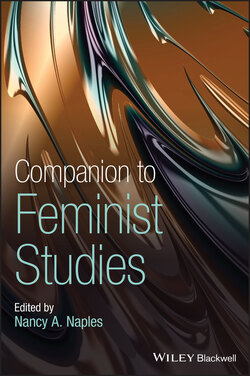Читать книгу Companion to Feminist Studies - Группа авторов - Страница 21
Biological Determinism and Essentialism Defining Biological Determinism and Essentialism
ОглавлениеBiological determinism refers to the idea that human behavior originates in and is dictated by biological entities or processes, either innate or constitutional (Rose 1982). Most frequently, in recent years, the causal mechanism is seen to reside in the individual's genetic make‐up, which acts on behavior through the brain or the hormones (Fine 2010). Hormones have receptors in the brain so they can act on the brain, as the brain can in turn affect the production of hormones. Theories colored by biological determinism are used to explain species‐specific behaviors, group differences or differences between individuals. As a philosophical or scientific viewpoint it has been applied throughout history to many different human characteristics and behaviors and has been used, often contentiously, to explain differences between people, such as those associated with race (Smedley 2016).
Biological determinism has always had strong currency in the explanation of observed differences in behavior and capacities between men and women, in defining women's “nature” and accounting for differences between people in their sexual orientations and behaviors. In her review of biological theories about sex and gender, Sayers defined biological essentialism as the view that “biology has endowed women with an essential femininity” (1982, p. 147). Maracek offers the following definition of essentialism as it relates to sex and gender, saying:
This view of gender holds that the categories “man” and “woman” are natural, self‐evident and unequivocal. It regards sex‐linked behaviours and traits as fixed and stable properties of separate and autonomous individuals. (1995, p. 162)
Essentialism is a broader concept than biological determinism. It refers to theories or viewpoints that account for differences between categories by ascribing to them enduring, fixed, and prototypical characteristics. In other words: their essence. Haslam and Whelan. define essentialism as “The claim that there are natural kinds whose members share a common essence” (2008, p. 1297). As a theoretical perspective, essentialist thinking is often found when the focus is on identifying differences between the sexes or specifying the nature of womankind. One of the main justifications for essentialist views of sex differences is a commitment to biological determinism but essentialist theories can be based on differences that are seen to have sociocultural origins, usually taking effect in infancy or early childhood.
